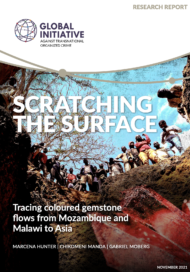Event Details
Posted on 03 Mar 2017
On Friday, 3rd of March, the Global Initiative participated in the Discussion on the draft United Nations-World Bank Flagship Study on the Role of Develoment in the Prevention of Violent Conflict, hosted by the Geneva Peacebuilding Platform.
The World Bank Office Geneva and the Geneva Peacebuilding Platform were pleased to convene this meeting with representatives of the Platform’s Advisory for a discussion on the draft United Nations-World Bank Flagship Study on the Role of Development in the Prevention of Violent Conflict.
The meeting of the UN-WB team with the Advisory Board took place at a pivotal moment in the development of the study as the key messages are distilled and the recommendations are developed. It immediately followed a working retreat on 1-2 March of the Study Advisory Group with the UN-World Bank team, which focused on these topics.
During our meeting, Alexandre Marc (Director of the Study at the World Bank) presented the report’s preliminary findings and its emerging key messages:
- After a decline since the 1990s, the number of people killed by violent conflict has been icnreasing sharply since 2010;
- terrorism-related fatalities also increased (2000-2015): the importance of violent extremism is one particular characteristic;
- the changing nature of conflict is particularly interesting: violent conflict is becoming more complex; spike in non-state actors (not interested in taking on the state);
- the majority of violent conflicts are occurring in Africa, MENA, and Asia;
- two-thirds of battle field deaths (2000-2015) come from 7 high-intensity conflicts, however, low intensity conflicrs have an enormous developmental impact;
- the changing nature of conflict is correlated with a transition in political systems;
- world record in forced displacement since WWII.
The discussion centred on recommendations, and the key questions of ‘what should change’ and ‘what should we do differently’. Alexandre Marc and Jago Salmon (Advisor Conflict and Fragility at the United Nations) led the discussion. Members of the Study’s Advisory Group also took part.
About the UN-WB Flagship Study
The joint UN-WB global policy study will provide evidence to improve understanding of the relationship between national development policies and approaches, international assistance and the prevention of violent conflict. Specifically, the Study will seek to improve understanding of how domestic political economy and development processes interact with security, political, and human rights tools, to prevent conflict from becoming violent, and provide guidance on how to improve coherence, reaching across the institutions to consolidate lessons. The study will also generate recommendations on how to improve the impact of external interventions, through better tapping into endogenous forces in a given polity, and interventions. The audience is both national and international policy makers and practitioners. The Study will be completed by, and presented to, the UN General Assembly and the World Bank–IMF Annual Meetings in 2017.
Broader context
Fragility, Conflict and Violence (FCV) has emerged as one of the most pressing challenges facing the global community today, reflecting volatility associated with the rapid increase in the number and intensity of violent conflicts since 2010. These developments have put the spotlight on the need to do more to prevent violent conflict as a critical part of making aid more effective and efficient, particularly from the development perspective. The UN General Assembly and Security Council have passed resolutions on Sustaining Peace, underlining the importance of a comprehensive approach to sustaining peace, and reconfirming that the prevention of conflict was central to the UN Charter. The new UN Secretary General António Guterres emphasised the importance of prevention at his first address to the UN Security Council on 10 January 2017. Conflict and violence is also recognized as a threat to development under the new Sustainable Development Agenda, and the World Bank’s risk-based approach to addressing fragility, conflict and violence emphasizes the need for prevention.
At the same time, there have been significant changes in how development resources and instruments are responding to the needs of countries affected by fragility, conflict and violence. The World Bank’s International Development Association (IDA) 18 replenishment negotiations concluded in December with a record replenishment of $75 billion. The additional financing will enable IDA to double the resources to address fragility, conflict and violence (more than $14 billion), as well as the root causes of these risks before they escalate, and additional financing for refugees and their host communities ($2 billion). The UN – World Bank Flagship Study on the Role of Development in the Prevention of Violent Conflict forms part of the IDA18 Commitments.



